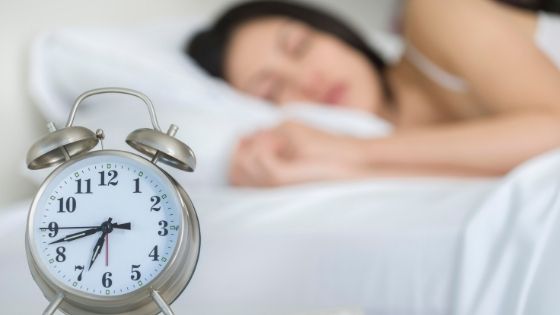Night owls and night stalkers too should aim to get a good night’s sleep regularly. It’s because, in reality, not having enough sleep will take its toll on health in the long run. Quality sleep is as important as having a healthy diet and lifestyle.
People who have a poor night’s sleep tend to have health complications such as low immune system, hormonal imbalance, obesity and brain function. Not to mention, developing chronic diseases such as hypertension, diabetes, and cardiovascular diseases can be harmful.


Contrastingly, getting enough sleep gets rid of these negative effects. It helps you think better; it helps pump up your metabolism and promotes a more positive outlook in life. Surprisingly, millions of people around the world suffer from sleep deprivation for many different reasons. More and more people are losing quality sleep because of stress, anxiety, and other problems.
If you’re one among those who has a problem sleeping, here are some valuable tips that will surely help you.
1. Increase Your Exposure to Bright Light During the Day
Our body naturally has a time-keeping clock that helps us stay awake during the day and makes us want to snooze on our Mattress during the night. This time-keeping clock is called the circadian rhythm. The natural light during the day helps the circadian rhythm in the body to function correctly, which helps you stay awake and not feel sleepy during the day.
In several studies, people suffering from insomnia had better night sleep quality when exposed to sunlight and bright lights during the day. They also experienced falling asleep faster by almost 90%, according to the studies.
2. Avoid Caffeinated Drinks in the Afternoon
One of the many reasons people lose sleep quality during the night is that they chugged down a coffee cup after lunch or perhaps in the afternoon. Caffeine tends to kick in very late after it’s consumed. Its stimulating effects keep your brain awake the entire day, so try avoiding coffee or energy drinks late in the afternoon.
You will likely stay awake the entire night. With that in mind, the best time to consume caffeine is in the morning. Do not drink caffeinated beverages at least six hours before your sleep. Caffeine can stay in your blood and system for an average of eight hours.
Also, avoid drinking large amounts of caffeinated beverages so that caffeine is easily washed out from your system. Besides, you can always buy decaffeinated beverages if you crave a cup of coffee later in the day.
3. Avoid Naps That Is More Than 2 Hours
Napping is very important to refresh our mind and body in the middle of the daily hustle. Napping for more than an hour will likely keep you up all night. Napping for more than an hour is already considered sleeping, which disrupts your body’s circadian rhythm.
The best napping duration is between 20 to 30 minutes. It improves brain function, energy levels and alertness of a person. Whereas napping beyond that contributes to sluggishness, sleepiness and can even harm your health.
4. Practice Consistency with Your Sleeping & Waking Patterns
Your body’s circadian rhythm functions in a looping mechanism that aligns your body clock with the sunset and sunrise. You can help your body get synchronized with your circadian rhythm by practising consistent waking and sleeping times.
To do that, you must impose self-discipline. Start by setting a schedule to sleep at night to give you eight to nine hours of sleep. Set the alarm to wake up at that time each day.
It is also very important to set the bedroom ambience to cold and dark to help yourself fall asleep faster. Get rid of electronic gadgets such as mobile phones and laptops to prevent distractions while you’re trying to get some sleep. Make sure you lie on a comfortable Mattress that supports and moulds your body’s shape perfectly. Lastly, make sure your room is free from any distracting noise.
Conclusion
There you have it! This article should help you get the best idea to get enough sleep at night. Always remember that these tips require will and self-discipline. Also, it’s not an overnight achievement. It requires time, effort, and, again, self-discipline to benefit yourself from the wonders that good sleep can give.
















